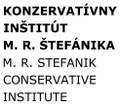
 The significance of paternalistic expectations, passivity, reliance on others (particularly the Government), lack of initiative and underdeveloped natural (voluntary) forms of solidarity remain major problems for Slovakia’s social policy, and will take a great deal of effort and time to redress.
The significance of paternalistic expectations, passivity, reliance on others (particularly the Government), lack of initiative and underdeveloped natural (voluntary) forms of solidarity remain major problems for Slovakia’s social policy, and will take a great deal of effort and time to redress.
The recent changes in Slovak welfare system, particularly in social assistance policy, have a good trend. However, systemic distortions accompanied mainly by high dependency of people on social benefits remain almost unchanged. Author focus on main problems and proposals related to social assistance to material need in Slovakia.
Within the problems directly related to social assistance to material need he defines sustaining certain cash benefits without strict requiring equivalent counterpart value from recipients and weak using of support in kind as main problem. Problems indirectly related to social assistance and Slovak´s welfare policy in general come from government excessive role in the economy and society and excessive level of compulsory social solidarity.
Therefore author describes that the relevant program should begin by reducing the redistribution rate of public funds and reducing the extent of government-enforced solidarity. He proposes – as one of the key tools – to guarantee of eligibility of those welfare recipients who are unwilling to become active only support in the form in kind, corresponds level of basic living minimum, and any cash transfer from government should be conditioned by working active approach of the relevant persons.
Author is an economic analyst for the Conservative Institute of M. R. ©tefánik.
This contribution was presented on the Work First Europe Conference in Budapest, Hungary, (14 -15 October 2004).
The full text is available here as an Adobe Acrobat PDF.